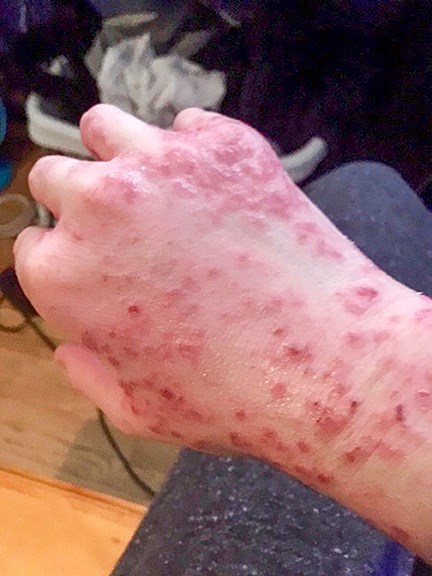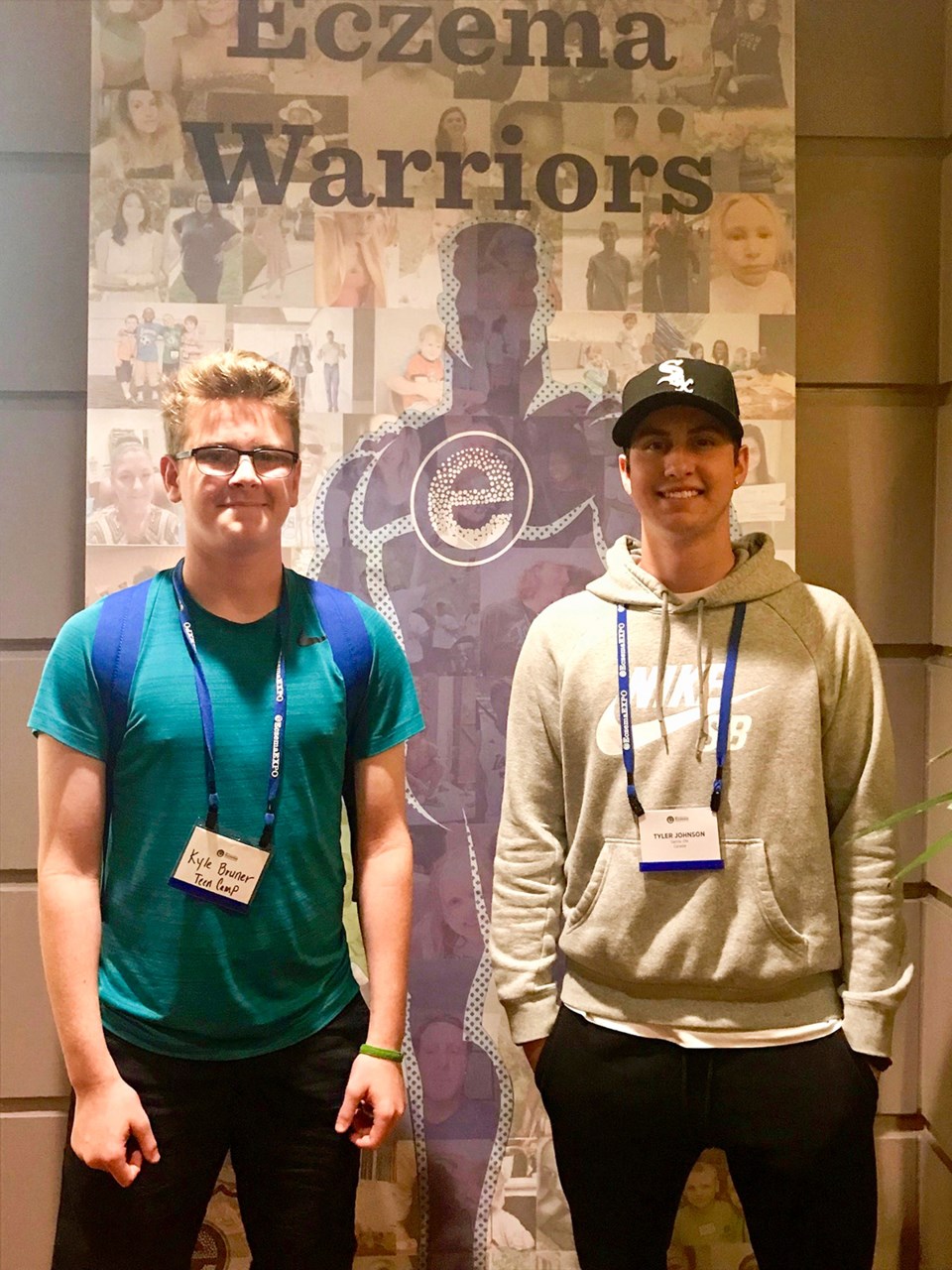Tara Jeffrey
Every time he leaves the house, Kyle Bruner braces himself for what’s coming: the stares, the whispers. People calling him names, taking pictures when he’s not looking.
At 17, he’s learned to cope with severe eczema — he was diagnosed as an infant — and now he’s ready to fight so others don’t have to go through the horror he’s lived.
“I’ve just gotten used to it over the years,” said the St. Patrick’s High School student, one of two Canadian ambassadors headed to Washington D.C. this weekend to join the fight to bring more awareness and better access to treatment for people living with eczema — a chronic, itchy, relapsing skin condition that affects 17% of Canadians.
“We were wrapping him in bandages and tying duct tape around his hands to keep gloves on them,” mom Jenn Johnson said of Kyle’s childhood.
“He would chew through his clothes and wake up just bloody everywhere.”
Countless doctor’s and hospital visits provided more questions than answers, and thousands of dollars spent on creams and treatments did little to help Kyle’s debilitating skin condition, accompanied by life-threatening allergies and asthma. Not to mention the toll it took on his youth; missing out on school, sports, and social activity.
“For Kyle to have a sleepover, he has to decide, ‘is it worth the flare-up I’m going to have for a week — to go for a night and have fun? To go and play basketball?’
A bacterial infection throughout his body forced him to miss two-and-a-half months of his Grade 7 year, after he fell in a pond.
“Then he started high school and things got worse,” said Johnson, adding hormone changes likely triggered the eczema — and the bullying — to intensify.
“People started taking pictures and calling him names like ‘patches,’” she said, adding he can’t wear the school’s polyester uniforms.
“That’s when we decided to pull him out of school for a bit.”
They found organizations like the Eczema Society of Canada and the National Eczema Association (U.S.). Attending the National Eczema expo in Chicago in 2018 was life changing for Kyle.
“It was the first time he said he was ever in a room where he wasn’t the one everyone was staring at,” said Johnson.
There they also met Dr. Peter Lio, co-founder and co-director of the Chicago Integrative Eczema Center, who now oversees Kyle’s care.
“They put him on the Aron Regime (named after South African pediatric dermatologist Richard Aron),” she said of the steroid/antiseptic/moisturizer mixture.
But because Kyle’s rare form of eczema is linked to his lungs (doctors say he’s in the top 1% in the world) the inflammation traveled to his lungs.
“He couldn’t breathe; he was using puffer after puffer and it wasn't getting any better.”

Kyle returned to Chicago where doctors determined the only option left was a new, biologic medication called Dupixent, which costs about $3,000 for a 2.28-millilitre supply.
The medicine, given via injection every two weeks, appears to be working and has cleared Kyle’s eczema by about 80%, though the side-effects impact his vision, and leave him extremely tired. Fortunately, his medication is covered by insurance, but not everyone is so lucky.
Kyle knows this, and he’s using his voice — joining the ‘More Than Skin Deep’ initiative and fellow ‘Eczema Warriors’ this weekend in D.C. There he will share his story with the FDA and other stakeholders to help shape the development of eczema treatments.
In November, he’s joining the Eczema Society of Canada at Queen’s Park in an effort to push for more access and affordable treatments.
“Honestly, it just got annoying being alone all the time and not having anyone to talk to about it,” said Kyle. “I want the government to make it easier to access stuff for us.”
He’s back at school this semester, works at the Superstore, volunteers with the Celebration of Lights, and ushers at Sarnia Sting games.
“They’re starting to realize that teenagers are having a harder time,” Johnson added, noting they talk regularly with Kyle about his mental health.
A recent study found patients with eczema are 36% more likely to attempt suicide.
“Eczema is not just a little spot on your finger,” Johnson said. “Its bullying, it’s people telling you to cover up, it’s teachers saying ‘get over it”… Imagine having red ants biting at you constantly. It’s burning, it’s pain, it’s depression.”
“We’ve run the gamut with Kyle and he’s getting pretty good at talking about it.”
